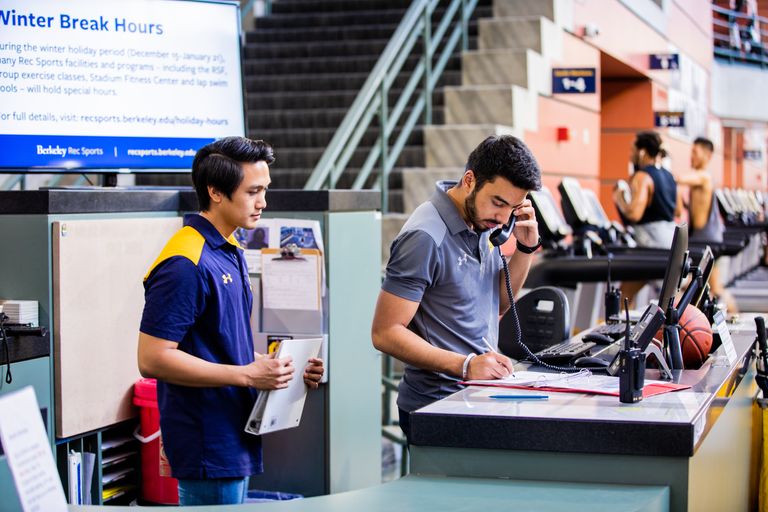The Federal Work-Study (FWS) Program provides a way for students to earn money to help pay for their education by working part-time while in a college. Over 3,400 schools participate in the program, which is managed by the Student Aid Office of the U.S. Education Department (ED).
The value of a student’s FWS award depends on their level of their financial need, the school’s amount of FWS funding, and when their FAFSA was submitted. FWS awards are capped at the applicant’s financial need as determined by the Student Aid Index (SAI) as generated by the Free Application for Federal Student Aid (FAFSA). The SAI is the amount that the student (or family for dependent students) is considered to be able to contribute to college costs.
Applying for the FWS Program
Students interested in FWS need to submit a FAFSA after October 1st every year for the following academic year. There is an option on the application that asks if the applicant would like to be considered for the FWS program. Applicants should submit a FAFSA as soon as possible after October 1st because colleges have limited FWS funds and must decline applicants after those funds are depleted.
In order to be eligible, a student’s SAI must be less than the Cost of Attendance (COA) at the college at which they’re enrolled or will be enrolled. The amount of FWS aid that the applicant is eligible to receive depends on the COA, the SAI, and the total amount of free Federal student aid that the applicant is eligible to receive from all programs.
On-Campus and Off-Campus Jobs
Many jobs qualify for the FWS program, but they vary significantly from school to school. Jobs may be on-campus or off-campus. If an FWS student gets an on-campus job, they will be working for the college itself. Employment for the college can include such jobs as research assistant, campus bus driver, groundskeeper, administrative assistant, or library, food service, or student center employee. According to FWS rules, an effort must be made by the college to place FWS students in jobs that enhance their exposure to their major field of study.
If a student works off-campus, the employer may be a public agency or a private non-profit organization. If the latter, the work performed must be in the public interest. At least 7% of a college’s FWS jobs must provide off-campus services for the community. Examples are reading tutors for young children, literacy tutors for adults, and math tutors at local public schools. Under new legislation, off-campus jobs may not be tied to political or civic engagement activities.
How Students Are Paid
Students earn at least the Federal minimum wage. They may earn more depending on the type of work, the skills required, and time in position. Below is a summary of the rules affecting pay:
- Undergraduate students are paid hourly wages.
- Graduate students are paid either by hourly wages or salary, depending on the type of work being done.
- The college must pay students at least monthly.
- The college must pay students directly if requested. Some colleges permit students to request that their pay be applied instead to education-related expenses such as tuition or room & board.
- Earnings cannot exceed a student’s total FWS award from the ED.
- When assigning work hours, employers must consider a student’s class schedule and extracurricular activities to avoid conflicts.
- FWS jobs are part-time. Students may work up to a maximum of 8 hours per day and 20 hours per week while school is in session. However, they may work up to 40 hours per week during fall and spring breaks if they are behind on hours and their supervisor approves their schedule.
- FWS income is taxable. Students are required to submit an IRS Form W-4 Employee Withholding Allowance Certificate when they start working. This determines how much income tax will be withheld from earnings.
Eligibility for the FWS Program
Foreign students do not qualify for the FWS Program. Students must be one of the following to receive Federal student aid of any type:
- A U.S. citizen,
- A U.S. national (includes natives of American Samoa or Swains Island), or
- A U.S. permanent resident with an I-151, I-551, or I-551C (Permanent Resident Card).
Differences between FWS and Regular Part-Time Jobs
Work-study and part-time jobs are similar, but there are differences. Most FWS jobs are on-campus, although some students are approved for off-campus jobs. Every job either benefits the school, the public, or both.
Regular part-time jobs are positions that students find by themselves off-campus. Jobs suitable for students are commonly found in the hospitality, food and beverage, and retail sectors. Students should be aware of whether the money earned from a part-time job will put them over the limit for Federal financial aid eligibility for the next academic year. FWS income doesn’t count against financial aid eligibility, but income from a regular job does.
Drawbacks of the FWS Program
Below are drawbacks to the FWS program that students should consider:
- FWS pay cannot cover large expenses: The FWS program is a good deal for students seeking financial aid because the funds are earned and don’t need to be repaid. But the money involved is seldom enough to cover large expenses such as tuition. Students can use work-study income for college expenses, but they’ll need other sources, such as scholarships, grants, or loans to cover total costs.
- Limited job choices: At many participating colleges, an FWS award does not guarantee a job. Students need to find a vacancy in an FWS job, apply for it, and be interviewed successfully before the job is theirs. Some colleges match students with potential jobs but still require that they apply and interview for them. Students should get in touch with their college’s financial aid office regarding FWS requirements and procedures.
- Must re-apply annually: Even if a student is successful in securing an FWS award, there’s no guarantee of re-acceptance into the program the next year. Changes in family financial status and the amount of FWS funding the college receives are among the factors that can impact re-acceptance. Students must re-apply each year by submitting a new FAFSA as early as possible. They may also need to re-apply for the job they previously held in the FWS program.
- Maximum weekly hours: The student’s college sets a limit on the number of hours that can be worked each week. This may reduce the student’s earnings potential while in school. Regular jobs off-campus have no such restrictions.
- GPA Restrictions: A college may set restrictions pertaining to the GPA’s of students participating in the FWS program. If a student’s GPA dips below a designated threshold, the college may not allow that student to participate in the program until it rises above that point again.
Major Changes to the FWS in 2026
Signed into law in July 2025, the One Big Beautiful Bill (OBBB) Act introduced sweeping adjustments to FWS. The following changes become effective in July, 2026:
- Shift in cost-sharing: The ED’s share of FWS wages will drop from 75% to 25%, requiring colleges to cover the remaining 75%. This change may lead schools to scale back the number of work-study jobs available, especially at smaller colleges with limited budgets. As a result, students could face more competition for fewer positions. The FWS program at their college may even be eliminated.
- Restrictions on job types: New ED guidance prohibits the use of FWS funds for political activities, including jobs in voter registration drives or campaign-related activities.
- Program uncertainty: While the OBBB Act lays out programmatic changes, ongoing budget negotiations continue to raise questions about the program’s future. Colleges may be hesitant to maintain FWS programs until the long-term picture becomes clear. Meanwhile, this may limit FWS jobs in number and type.
Proposed Budget Cuts for 2026
Adding to the uncertainty, the pending FY 2026 Federal budget proposal includes significant reductions to student aid programs:
- Nearly $1 billion in cuts to FWS: The proposal would reduce Federal funding for FWS by nearly one billion dollars. Such a reduction will sharply decrease the number of funded positions nationwide and limit opportunities for students who rely on these jobs to cover certain expenses.
- Elimination of the Federal Supplemental Educational Opportunity Grant (FSEOG): This program, which has long supplemented aid for low-income students, is slated for removal in the 2026 proposal. Its elimination would disproportionately affect students with the greatest financial need.
- Potential shift to state responsibility: The budget suggests shifting more responsibility to the states, raising concerns about the consistency of support across the country. Under-resourced states may be unable to fill the gap, creating disproportionate access to FWS opportunities among the states.
What This Means for Students
For students who rely on FWS, these changes give rise to important considerations:
- Fewer jobs available: As colleges shoulder more of the cost, they are likely to reduce their number of FWS jobs. Students should expect an intense competition for fewer FWS jobs. They will need to pounce when an FWS job is posted.
- Eligible jobs will be reduced: Roles tied to political or civic engagement activities are no longer eligible. This narrows opportunities for students who previously used work-study to pursue community organizing or advocacy, or to gain government-related work experience.
- Future funding is uncertain: There is no guarantee that funding levels will remain stable. Students should understand that FWS may not be a sustainable source of financial support throughout their college years.
- Increased institutional differences: Because the cost-sharing formula has been changed, some colleges may cut more FWS positions than others. This means the impact on jobs is likely to vary significantly from college to college.
How Students Can Respond
Students shouldn’t give up hope. They should prepare for changes by exploring alternatives and being proactive.
Check with the financial aid office: Each college will handle the changes in its own way. Determine how the college is adjusting FWS jobs and funding, and ask about changes to job availability.
- Explore alternative funding sources: Scholarships, grants, loans, and regular part-time jobs may help fill lost FWS income.
- Apply early: Work-study will continue to be awarded by colleges on a first-come, first-served basis. Students should file the FAFSA as soon as possible each year and stay aware of target college’s internal deadlines for applying for jobs.
- Diversify employment options: Students may seek part-time jobs on campus that are not part of the FWS program such as those that are college-funded.
- Stay informed: Track updates from the ED and the college’s financial aid office. Staying informed is the best way to be prepared.


Recent Comments